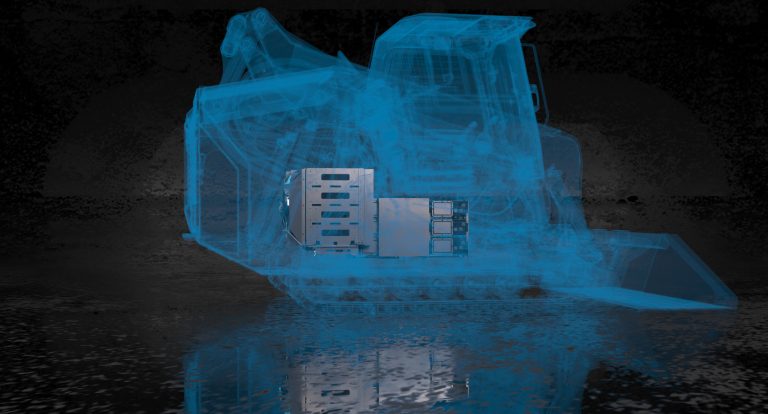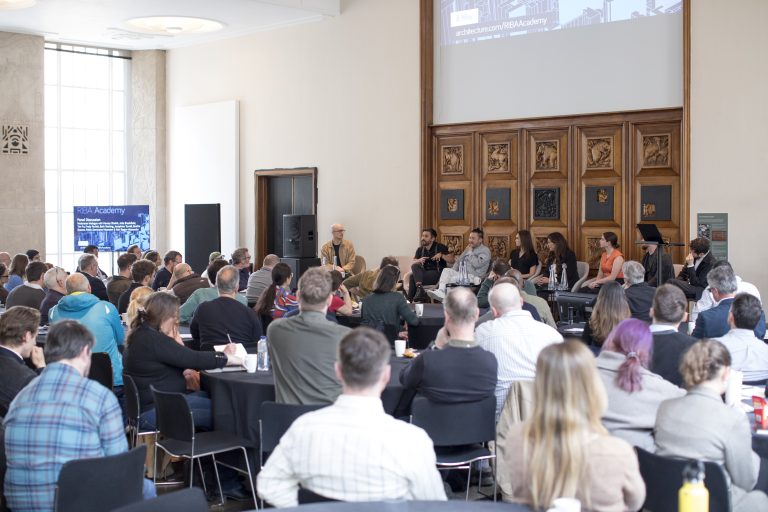– AI-Powered Technologies, Advanced Displays and Modular Batteries Designed to Revolutionise Compact Construction Equipment – Bobcat, a global leader in compact construction equipment, unveiled a suite of groundbreaking technologies at CES 2026 to transform how work gets done. Engineered for simplicity and productivity, these innovations aim to make equipment operation more intuitive, empowering operators to accomplish more with confidence. The new solutions integrate artificial intelligence, electrification, autonomy and connectivity into a scalable system of solutions designed to support operators, technicians and fleet owners alike. “For nearly 70 years, Bobcat has led the compact equipment industry by solving real problems for real people,” said Scott Park, CEO and Vice Chairman of Doosan Bobcat. “Today, as workforce needs change and jobsites become more complex, we’re responding with intelligent systems that empower people to accomplish more, faster and smarter. These innovations aren’t concepts for the distant future; they’re advancements that are shaping how work gets done right now.” Bobcat Jobsite Companion: The Industry’s First AI-Enabled Feature for Compact Construction Equipment At the centre of Bobcat’s CES 2026 announcement is Bobcat Jobsite Companion, a first-of-its-kind, AI-enabled feature for compact construction equipment. This prototype technology will provide real-time support and automation for everyday machine tasks. Operators can simply ask a question or state a command, and the system responds through voice and display interactions—adjusting attachment settings based on environment, offering operational recommendations and automating more than 50 functions without taking hands off the controls. Powered by Bobcat’s proprietary AI large language model, Jobsite Companion runs entirely onboard the machine, enabling real-time responsiveness without reliance on cloud connectivity. This ensures full functionality even in remote or connectivity-limited jobsites, a critical requirement for construction environments. This technology redefines the machine-operator relationship, delivering the most significant interface evolution in nearly two decades. “Jobsite Companion lowers the barrier to entry for new operators while helping experienced professionals work faster and more precisely,” said Joel Honeyman, Vice President of Global Innovation at Doosan Bobcat. “It’s not just smarter technology; it’s a smarter experience that puts expert-level guidance directly in the cab.” Service.AI: AI-Powered Support for Faster Repairs and More Uptime Bobcat also announced Service.AI, an AI-powered service and support platform designed to minimise equipment downtime by giving dealers and technicians instant access to Bobcat’s full repair expertise. With Service.AI, Bobcat dealers and technicians can instantly retrieve repair manuals and warranty details, receive real-time diagnostic guidance, and leverage Bobcat’s extensive archive of historical cases for faster troubleshooting. This prototype technology delivers the expertise of a master technician—providing step-by-step guidance to streamline the service process and complete repairs efficiently. By simplifying complex diagnostics, Service.AI not only accelerates repair timelines but helps to address the ongoing labour shortage. Collision Warning and Avoidance System: Purposeful Innovation for Jobsite Confidence Bobcat showcased its prototype Collision Warning and Avoidance System, the first and only system in development for the compact equipment industry designed to actively slow or stop a machine before a collision occurs. Using advanced imaging radar, the system tracks the position, direction and speed of surrounding objects in real time. If a potential hazard is detected, the machine will automatically alert and even slow down or stop the machine. Designed to assist operator awareness without adding complexity, the system is already being cited through customer testing as a differentiating factor for choosing Bobcat equipment. Advanced Display Technology: A Smarter View into the Jobsite Bobcat also highlighted its Advanced Display Technology, a MicroLED, transparent, auto-tint, touch-enabled display concept seamlessly integrated into the cab door or machine window. The system overlays critical operational data directly onto the operator’s field of view, allowing them to see both the jobsite and machine insights simultaneously. Integrated features include: “It’s not just a screen,” Honeyman said. “It’s a smarter window into the work, delivering clarity, control and confidence.” RogueX3: The Next Evolution of Autonomous, Electric and Modular Equipment Bobcat is pushing the boundaries of innovation with RogueX3, its most advanced concept machine to date. Fully electric and autonomous, RogueX3 takes modularity to the next level, adapting seamlessly to a wide range of jobsite needs. The version showcased at CES features an electric powertrain and can operate remotely or autonomously without a cab. However, RogueX3 was engineered for ultimate flexibility. Its modular design allows interchangeable components—cab or no cab, wheels or tracks, configurable lift arms and more—so users can tailor the machine to specific tasks. Looking ahead, the machine could be built and powered in multiple ways, including electric, diesel, hybrid or even hydrogen. Building on insights from RogueX and RogueX2, RogueX3’s innovative design has already generated multiple pending patents that will shape the future of Bobcat’s product lineup. Bobcat Standard Unit Pack (BSUP): Modular Power for an Electric Future Powering Bobcat’s electric future is the Bobcat Standard Unit Pack (BSUP), a fast-charging, modular battery system engineered for rugged jobsite conditions. BSUP units are: By enabling flexible, cleaner and quieter operations, BSUP will serve as a foundational building block for the next generation of electric construction equipment. Together, Bobcat Jobsite Companion, Service.AI, Collision Warning and Avoidance, Advanced Display Technology, RogueX3 and BSUP form an integrated system of solutions set to redefine what’s possible on the modern jobsite. “We’re not just imagining the future — we’re engineering it,” Park said. “By combining AI, autonomy, electrification and connectivity, Bobcat is creating technology that empowers people, simplifies work and sets a new standard for the industry.” Products and technologies featured at CES are showcased as prototypes or concept models, highlighting the innovation shaping the future. While not commercially available at present, several are advancing toward commercialisation. Building, Design & Construction Magazine | The Choice of Industry Professionals














